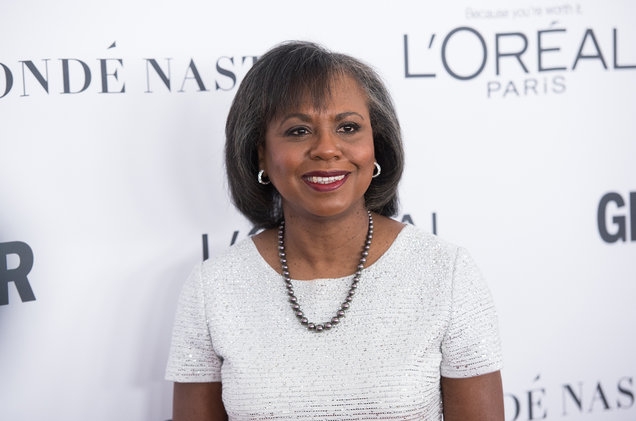It’s been 26 years since Anita Hill testified that Clarence Thomas repeatedly sexually harassed her and he was nonetheless confirmed as a Supreme Court justice. On Friday afternoon (Dec. 8) at UTA headquarters in Beverly Hills, the attorney reflected on her experiences in the context of Hollywood’s nascent reckoning of sexual misconduct.
“I don’t see 1991 and 2017 as isolated moments. They’re part of the arc of history bending toward justice,” said Hill in a conversation with National Women’s Law Center president and CEO Fatima Goss Graves, adding that she saw her historic testimony as “a spark,” but not the only one that led to the current era.
Accountability has institutionally been hard to come by and inconsistently applied. The existing laws suffer from “an enforcement problem,” said Goss Graves, and they lack adequate protection for those coming forward. “For example, everyone in Hollywood is a freelancer, so no one is held accountable,” she said, adding that low-wage earners and women in the “gig economy” also fall through the cracks of legal protection. “We have to ensure everyone has a level of accountability.”
Although the standing-room-only crowd at UTA was decidedly industry -- the event’s host committee was comprised of Alyssa Milano, Frances Fisher, UTA Independent Film Group head Rena Ronson, powerhouse awards strategist Lisa Taback and composer Diane Warren, along with Bonnie Abaunza, Jillian Barba and Elena Christopoulos -- Hill and Goss Graves urged that the movement be mindful of inclusivity.
That includes defining what accountability looks like for perpetrators who aren’t household names, seeking justice for male survivors and also closing the credibility gap.
“We look at stories through race, class and physical appearance [in determining who is believed and who isn’t],” Hill said. “We cannot let this moment pass without examining that.”
Hill also urged the entertainment community to wield its creative talents and its massive platform responsibly. “We need realistic representations of sexual harassment. It’s been a punchline” -- the image of a boss playfully chasing his secretary around a desk -- “as opposed to a serious problem that impacts someone’s ability to make a living,” she said. “We need an examination of who is in control of content.”
Hill also addressed the conundrum that many have faced over the last two months, when beloved colleagues and idols have been exposed as perpetrators. “This is also a moment to dispel the myth of who is a harasser,” she said. “It’s not limited to ‘monsters.’ It’s people we otherwise admire, give awards to, vote into office and mourn the loss of when held accountable.”
Both panelists were asked by moderator Emily Martin, NWLC general counsel and vp workplace justice, if they felt this moment of reckoning would last. “What’s different now? For the first time, when women told their stories, they were not immediately disregarded, doubted and shamed. That has resulted in more and more women coming forward,” said Goss Graves. “I do not think you can put that back in a box.”
Combating sexual harassment can lead to even more significant social change. “Sexual harassment is an entry point that creates a culture that allows worse sexual violence to happen,” said social activist and #MeToo hashtag creator Tarana Burke from the front row.
Said Hill, “I never believed 1991 was the end. I never saw it as the defining moment for me or for this issue. We have to keep pushing to hold people accountable.”
This article originally appeared in THR.








